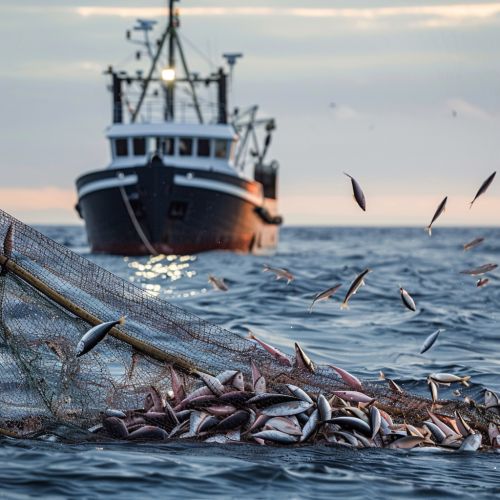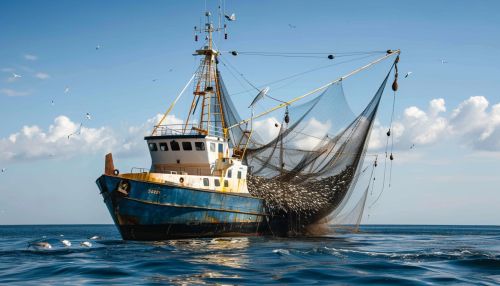Sustainable Fisheries
Introduction
Sustainable fisheries are a modern approach to fisheries management that aims to balance ecological health with the economic benefits derived from fishing. This concept is rooted in the principles of sustainability, which emphasize the need for current generations to meet their needs without compromising the ability of future generations to meet their own. Sustainable fisheries aim to maintain healthy fish populations, ecosystems, and communities over the long term.
Principles of Sustainable Fisheries
The principles of sustainable fisheries are based on the understanding that the health of marine ecosystems and the livelihoods of people who depend on them are interconnected. These principles include:
- Maintaining healthy fish populations: Sustainable fisheries aim to ensure that fish populations remain at levels that can produce maximum sustainable yield (MSY). This is the largest average yield, or catch, that can theoretically be taken from a species' stock over an indefinite period under existing environmental conditions.
- Minimizing environmental impact: Sustainable fisheries practices strive to minimize the impact of fishing on marine ecosystems. This includes reducing bycatch (the unintentional capture of non-target species), avoiding damage to marine habitats, and preventing overfishing.
- Ensuring economic viability: Sustainable fisheries must be economically viable to provide livelihoods for fishing communities and to contribute to national economies.
- Upholding social and community values: Sustainable fisheries also aim to uphold the social and cultural values of fishing communities. This includes respecting traditional fishing rights and practices, and ensuring that the benefits of fishing are equitably distributed.
Sustainable Fisheries Management
Sustainable fisheries management involves a range of strategies and tools designed to maintain healthy fish populations, minimize environmental impact, and ensure economic viability. These include:
- Fish stock assessments: These are scientific analyses that provide information on the status of fish stocks. They are used to determine the level of fishing that can be sustained without depleting the stock.
- Catch shares: This is a type of management system where a fishery's total allowable catch is divided into shares that are allocated to individual fishermen, cooperatives, or communities.
- Marine protected areas (MPAs): These are areas of the ocean where human activities are more tightly regulated than the surrounding waters to protect ecosystems and biodiversity.
- Bycatch reduction devices: These are modifications to fishing gear designed to reduce the unintentional capture of non-target species.
- Ecosystem-based fishery management (EBFM): This is a holistic approach to fisheries management that takes into account the interactions between different species and their environment.


Challenges and Controversies
Despite the clear benefits of sustainable fisheries, there are numerous challenges and controversies associated with their implementation. These include:
- Data limitations: Accurate fish stock assessments require comprehensive and up-to-date data, which can be difficult to obtain, especially for small-scale fisheries in developing countries.
- Enforcement: Ensuring compliance with sustainable fisheries management measures can be challenging, particularly in areas beyond national jurisdiction.
- Equity concerns: There are concerns that some sustainable fisheries management measures, such as catch shares, may favor larger commercial operators at the expense of small-scale fishermen and coastal communities.
- Climate change: Changes in ocean temperature and chemistry due to climate change can have significant impacts on fish populations and the ecosystems they depend on, adding another layer of complexity to sustainable fisheries management.
Case Studies
Several case studies illustrate the potential benefits and challenges of sustainable fisheries:
- The Alaska pollock fishery is often cited as a success story in sustainable fisheries management. Through a combination of rigorous scientific assessment, catch shares, and bycatch reduction measures, this fishery has been able to maintain healthy fish populations and profitable fishing operations.
- The Mediterranean bluefin tuna fishery provides a cautionary tale of the consequences of overfishing and inadequate management. Despite recent improvements, the fishery has yet to fully recover from decades of overfishing.
- The Marine Stewardship Council (MSC) is a global certification program for sustainable seafood. While the MSC has been praised for raising awareness about sustainable fisheries, it has also faced criticism over the rigor of its standards and the transparency of its certification process.
Conclusion
Sustainable fisheries represent a critical strategy for preserving the health of our oceans and the livelihoods of people who depend on them. While significant challenges remain, the principles and practices of sustainable fisheries offer a path towards a more sustainable future for our oceans.
